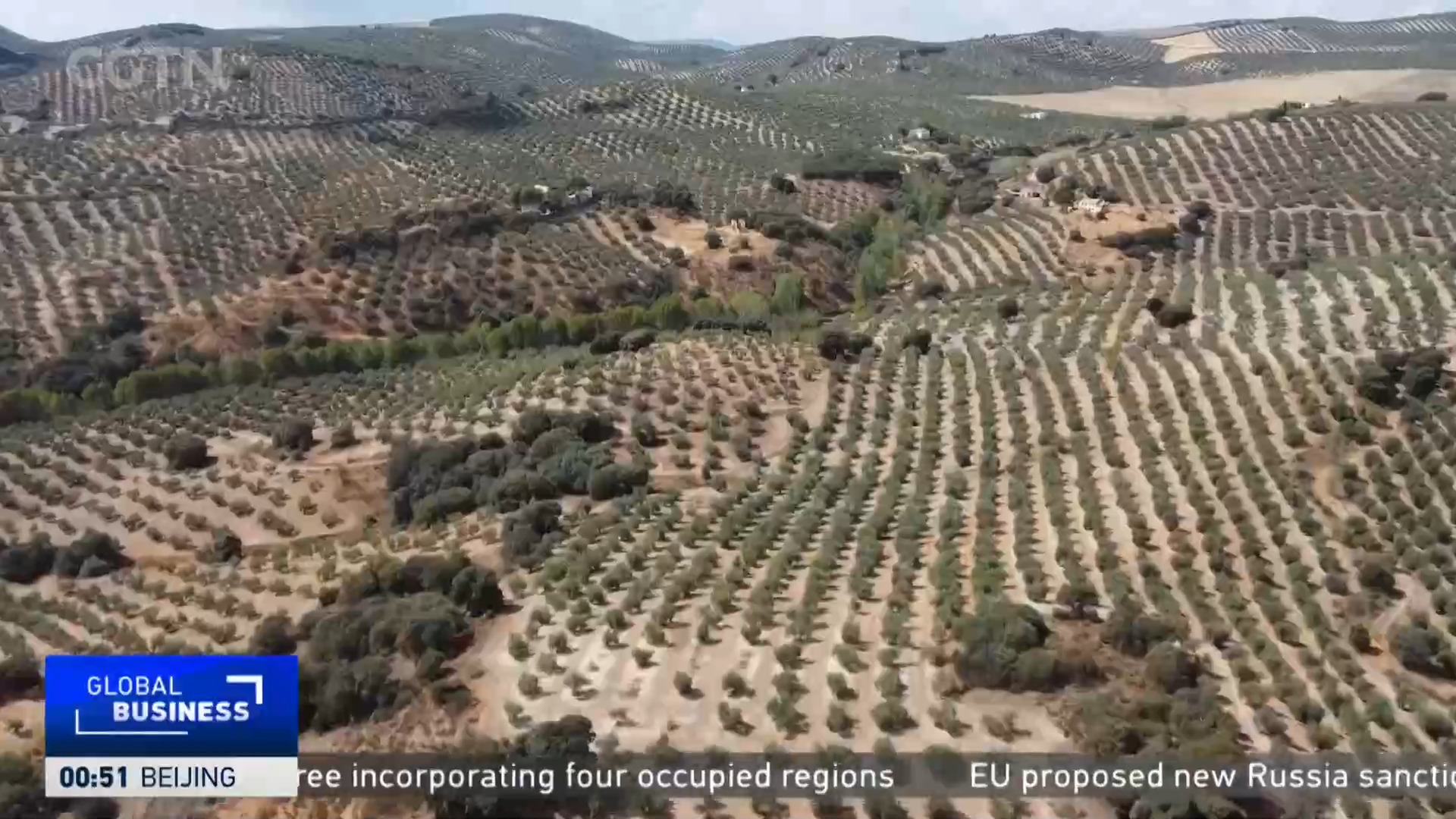02:28

A farmer has told of the "catastrophic" olive harvest in Spain this year caused by the country's heatwave and said climate change heralds a bleak future for the major olive oil producer.
The southern region of Andalucia in Spain is famous for flamenco, oranges and olive oil as it makes one-third of the world's "green gold" as locals call it.
But this centuries-old tradition of olive oil production is under threat from the impact of climate change.
Severe droughts and blistering heat are badly impacting the harvests.
Jose Martinez has a farm in Granada, Andalucia, which has been in his family for hundreds of years. Martinez says that this year's harvest is set to be one of the worst he can remember.
"In a regular year, I used to harvest around 150,000 kilos of olives. This year will be catastrophic. I will just harvest 5,000 or 6,000 kilos which is 90 percent less than normal. And you just have to look at the trees, almost not a single olive," he told CGTN.
The problem first began in May when Spain experienced one of its many heatwaves of 2022.
May is traditionally the time when the olive bud begins to flower but the extreme heat resulted in many flowers being burnt on the vine, leading to very few olives.
The lack of rainfall has also been cited as a major factor for the poor harvest.
A nearby reservoir to Martinez's land has now run almost dry, and while olive trees can survive with very little water they also stop producing their fruit.

This year's olive harvest in Andalucia has been "catastrophic" /CFP
This year's olive harvest in Andalucia has been "catastrophic" /CFP
Exports
In Spain, olive oil exports are worth $3.7 billion per year.
Companies like Conde de Benalua, in Granada, sell their product all over the world with the European Union and the U.S. their biggest markets.
Last year it processed 40 million kilos worth of olives. This year plant director Eduardo Valverde told CGTN Europe that figure will likely halve.
READ MORE
Will Russia's referendum raise nuclear threat?
Iran promises 'transparent' Amini investigation
Chinese student comes to soprano's rescue
"This (olive oil) is our main product, we produce it here in Granada and its main markets are the U.S., Italy and of course Spain," he said. "The impact of the poor harvest we will have this year could mean a lack of availability and in the worst case, we could see an increase in the price of up to 200 percent."
The rise in energy prices has also made the business of harvesting olives a more expensive affair but growers are wary of passing these expenses on to consumers.
But this may have to change if production costs don't start to decline.
And if the rains continue to stay away, for the olive farmers of Andalucia the tough times could get even tougher.